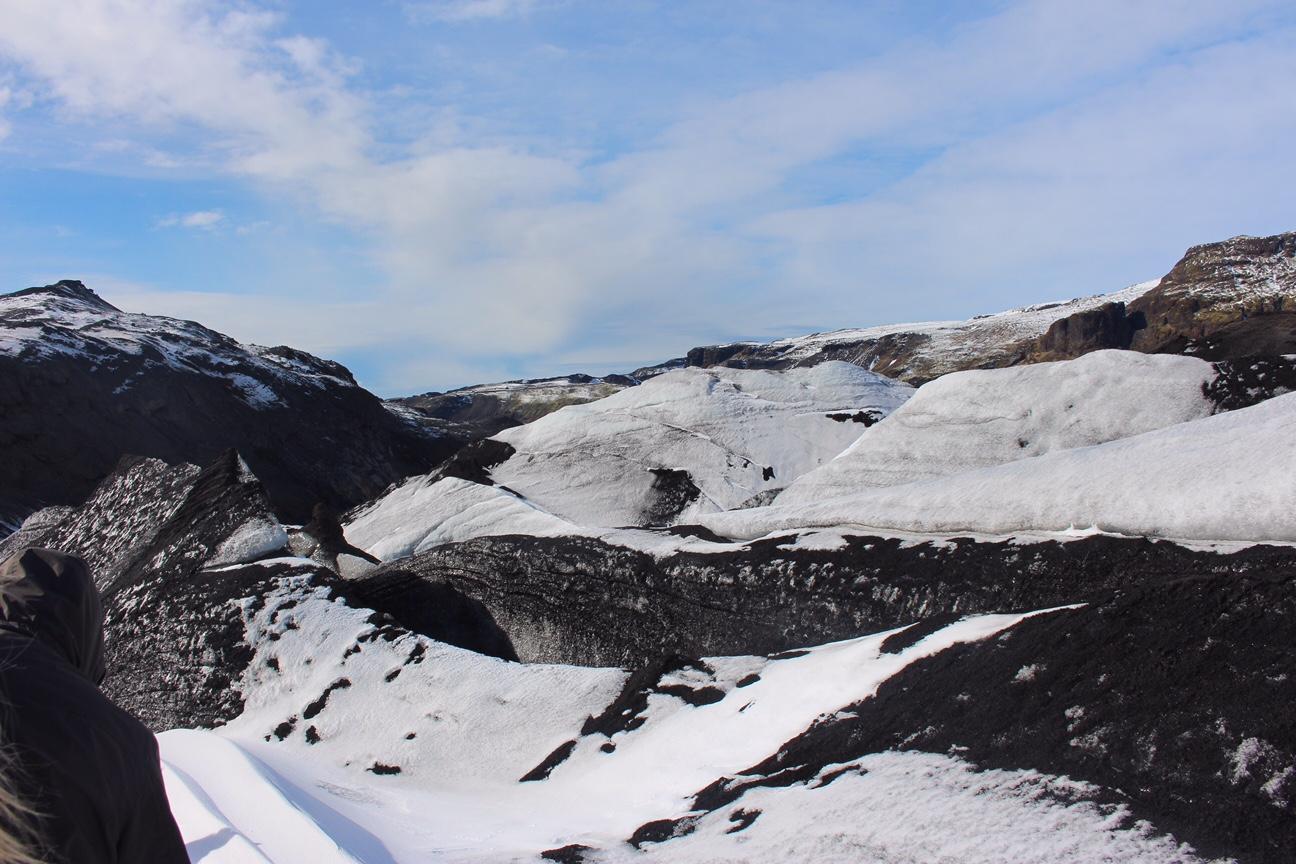An ode to Earth Day
April 22, 2016
As Newton discovered, for every action, there’s an equal and opposite reaction. I’m not talking about physics–I’m talking about Earth.
Last month, I spent a week touring Iceland: a rather untouched part of Earth. After trekking lava fields and snorkeling in tectonic fissures, I was overwhelmed by the country’s beauty. Even more so, I was saddened.
Iceland is a small but mighty place, inhabited by a tiny population and an array of natural wonders. Consequently, Icelanders have formed a silent pact to keep their land pristine. As an American, I was shocked by Iceland’s purity. There were no factories, no corporate farms and no warehouses. Instead, I saw rolling hills, vast lakes and towering volcanoes.
It wasn’t until my last day in Iceland that I realized the profoundness of Newton’s statement. While standing before the Sólheimajökull glacier, my tour guide talked about how quickly the glacier was receding. His voice was full of sorrow as he explained that, one day, there would no longer be a glacier where we were standing.
Initially, I was confused. Icelanders took sustainability seriously, so how could they be feeling the backlash of climate change harshly?
Because for every action, there is an equal and opposite reaction. Climate change involves the entire planet, so when countries like our own act in an environmentally destructive manner, countries like Iceland–countries that use mostly geothermal energy, grow their tomatoes in family-owned greenhouses and eat only locally sourced meat–are impacted negatively.
I share this story about Iceland not in an effort to villainize countries like our own, but rather to shed light on the epidemic of unawareness. Through being a self-proclaimed activist for environmental stewardship, I’ve found that most people aren’t apathetic, they’re simply unaware.
For example, when someone has a burger for lunch, they aren’t considering that, somehow, their actions might be causing glaciers in Iceland to melt. They are simply hungry and McDonald’s is only a block away. But, in most cases, once that person understands that it took about 1,800 gallons of water and up to 6.5 pounds in greenhouse gas emissions to produce their burger, they might be more willing to make sacrifices. The concept of awareness does not assert that humans must be faultless, but that humans should be trying.
Climate change is a global effort with global consequences. Thus, Earth Day is something that requires more than passively recycling a few cans or using a hashtag. Earth Day requires understanding.
I like to think of life on Earth as the winning lottery ticket. Just by being alive, humans are living some sort of miracle. It is mankind’s obligation to protect this phenomenon called life–the snow-capped mountain ranges in Iceland, the homes of people in Indonesia, the bright-eyed preschool children and the wildflowers that bloom in Montana. When solving a global problem, global awareness is a good place to start.
This Earth Day, I don’t wish for complete and immediate environmental reform. Instead, I hope that each individual takes the time to educate themselves about our changing planet, whether it be through reading an extensive research journal, or a simple Google search. Above all, I hope that, as humans, we can comprehend the importance of not only ourselves, but others, and the equal and opposite reaction our actions have.
